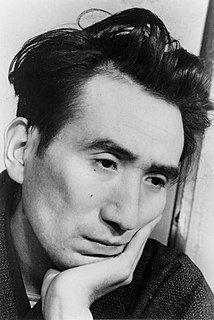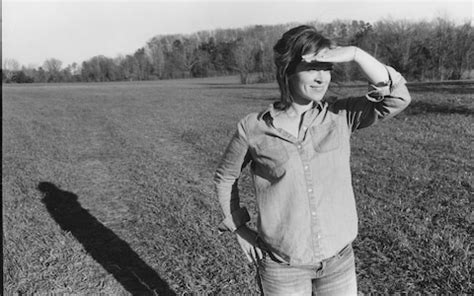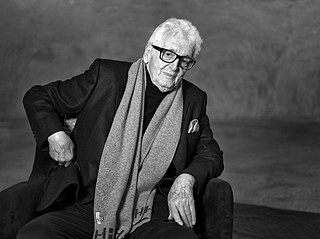A Quote by Louis J. Camuti
Love of animals is a universal impulse, a common ground on which all of us may meet. By loving and understanding animals, perhaps we humans shall come to understand each other.
Related Quotes
Humans and other animals experience love and fear, and form deep emotional bonds with cherished companions. We mourn when a close friend dies, and so do other animals, as Barbara King's poignant book illustrates in compelling detail. How Animals Grieve helps us to connect and to better understand the complex social lives of other animals and of ourselves.
Humans — who enslave, castrate, experiment on, and fillet other animals — have had an understandable penchant for pretending animals do not feel pain. A sharp distinction between humans and 'animals' is essential if we are to bend them to our will, make them work for us, wear them, eat them — without any disquieting tinges of guilt or regret. It is unseemly of us, who often behave so unfeelingly toward other animals, to contend that only humans can suffer. The behavior of other animals renders such pretensions specious. They are just too much like us.
When humans act like animals, they become the most dangerous of animals to themselves and other humans, and this is because of another critical difference between humans and animals: Whereas animals are usually restrained by the limits of physical appetites, humans have mental appetites that can be far more gross and capacious than physical ones. Only humans squander and hoard, murder and pillage because of notions.
Mother, recently I have discovered the one way in which human beings differ completely from other animals. Man has, I know, language, knowledge, principles, and social order, but don't all the other animals have them too, granted the difference of degree? Perhaps the animals even have religions. Man boasts of being the lord of all creation, but it would seem as if essentially he does not differ in the least from other animals. But, Mother, there was one way I thought of. Perhaps you won't understand. It's a faculty absolutely unique to man - having secrets. Can you see what I mean?
We humans are in such a strange position—we are still animals whose behavior reflects that of our ancestors, yet we are unique—unlike any other animal on earth. Our distinctiveness separates us and makes it easy to forget where we came from. Perhaps dogs help us remember the depth of our roots, reminding us—the animals at the other end of the leash—that we may be special, but we are not alone. No wonder we call them our best friends.
It's not that humans and non-humans are identical... but the lack of understanding that led to the slave trade is the same lack of understanding many people have about animals today. When slaves were brought over from Africa, many people believed they were not humans, that they didn't have feelings. Many people believe that primates and other animals don't have feelings, too, but they do.
The love I have for our wildlife is so great, it fills my world. After Black Saturday I saw a world that was black and white, void of animals and humans. What I missed most was the love and life of living with the wildlife. Each day I think of the ones gone and there is a deep hole in my heart. I did not miss the humans or the sounds they make, I missed the animals the sounds of peace and love that came from them. Such beauty and harmony with nature, only animals can be that smart.
It has been an obsession of human beings to create a hierarchy that places the human species on top and lumps all the "other animals" together beneath us. The resulting "speciesism" allows us to look upon animals as less deserving of all manner of rights and considerations than humans. To support this lower status, humans have argued that animals act instinctually; don't have souls; don't feel physical pain like we do; and lack self-consciousness, cognitive intelligence, emotional feelings, morality, and ethics.
Animals love. They love their being. They strive to survive, to celebrate, to propagate . So certainly something we learn from animals is love. To survive and to celebrate, propagate and to love life. To be the best we can be - the right to be here and the responsibility to be the best dog or bear or horse that they can be. Humans have the tendency to self pity that other animals don't indulge in.
I think the primary gift of the animal is offered to writer and non-writer alike; they teach us about love, or attunement, which is love in action. A lot of people have closer relationships with animals than they do with other humans, because real intimacy requires both parties to consistently lean in, and animals are so good at this. They remain consistently, amazingly attuned to us, even when we fail them, and so we stay present, because we sense we're safe.
Humans are particularly interesting; our culture is incredible, there's no doubt about that. In many respects, no other species matches ours. But in quite a few respects, they do, and that can help us, perhaps, to better understand our own culture. We look at the ways humans are similar to other animals, and at the ways they differ, rather than just saying, "We have culture and you don't."
Typically, defenders of experiments on animals do not deny that animals suffer. They cannot deny the animals' suffering, because they need to stress the similarities between humans and other animals in order to claim that their experiments may have some relevance for human purposes. The experimenter who forces rats to choose between starvation and electric shock to see if they develop ulcers (which they do) does so because the rat has a nervous system very similar to a human being's, and presumably feels an electric shock in a similar way.
When I started Ashes and Snow in 1992, I set out to explore the relationship between man and animals from the inside out. In discovering the shared language and poetic sensibilities of all animals, I am working towards restoring the common ground that once existed when people lived in harmony with animals.



































